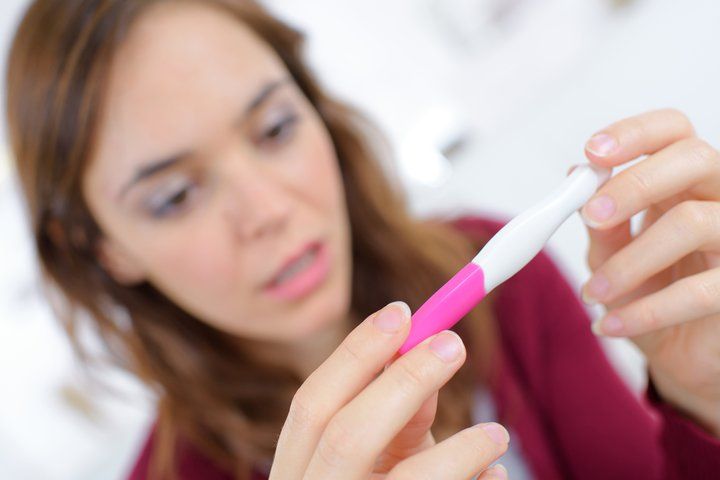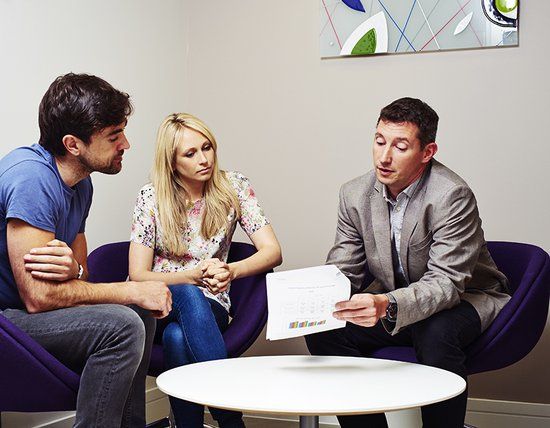
It’s National Fertility Awareness Week from today, an annual campaign run by Infertility Network to raise awareness of the fact that 1 in 6 couples struggle to become parents.
So this week in a series of five special blogs, our fertility experts are going to be talking about common problems that can make it difficult to get pregnant; all the different fertility treatment options available and when they might be used; and how to fund private IVF if you can’t get help on the NHS.
Remember our Patient Advisors are here to answer any questions you may have – whether it’s about our treatments, or tests we can do that will identify if there’s a medical reason why you’re not pregnant yet.
Dr David Polson is our Medical Director and as one of our leading consultants, has been helping our patients to achieve their dreams of a family for over 25 years.
In the first of our special National Fertility Awareness Week blogs, he shares his thoughts about why you may not be getting pregnant and when you might need to get further help:
Stress
Not getting pregnant as quickly as you’d expect can cause all sorts of worry and concern. But worrying is the last thing you should do – because stress may affect your fertility. When you’re anxious and stressed, your body is mentally and physically under pressure too. So try to relax. It’s not unusual for it to take months or even a year to get pregnant.
Know your cycle
Knowing when you’re ovulating is crucial, your optimum window for conception is small. Don’t just assume you ovulate in the middle of your cycle – so on a 28 day cycle, around day 14. You may find it changes slightly from month to month, and remember that sperm can only live in the cervix for around three days. Use ovulation prediction kits, which are very simple to use and highly accurate if used correctly. They will tell you whether you’re likely to ovulate soon by checking hormone levels in your urine. As for frequency of intercourse, every other day should be sufficient.
Give yourself time
You’ve probably spent a long time trying not to get pregnant using birth control. And now you’re ready for a baby….nothing is happening. But don’t panic, it doesn’t always mean you need fertility treatment or that there’s something wrong, it usually means you just need to try for longer. If you’re both in good health and have not successfully conceived after a year or more of regular, unprotected intercourse, it is worth a visit to us for a private and quick Fertility MOT, or your GP, to see if there’s a medical reason that’s stopping you getting pregnant. If you’re over 35, it’s worth seeking help a lot sooner as if tests do show a problem, your chances of success from fertility treatment such as IVF is a lot higher the younger you are. So don’t wait too long.
Your weight
Your diet does affect your fertility. The Royal College of Obstetricians and Gynaecologists recently reported that being very overweight affects your chances of conceiving, and increases the risk of miscarriage and pregnancy complications. Having a high BMI doesn’t just make it harder to get pregnant, it also means that fertility treatment like IVF is less likely to work. Our consultant nutritionist, Jeannette Jackson, recently shared her easy tips on how you can lower your BMI so your body is ready for pregnancy. Weight may also negatively affect a man’s fertility too, so if your partner also has a high BMI, it makes sense for both of you to get into optimum health so you have the best chance of getting pregnant.
Secondary infertility
You conceived quickly with your first child, but now you want another baby – and you’re not pregnant yet. Secondary infertility is quite common. But again, this doesn’t mean you need IVF. It can take longer to get pregnant again, even if you’ve had no problems having children before. It could be something is interfering with your ability to get pregnant naturally, such as scar tissue from previous caesareans, infections, fibroids or pelvic inflammatory disease. Don’t be afraid to ask for help. Fertility MOT tests can be done for both you and your partner, which will spot any problem quickly and simply.
Above all, don’t assume you need IVF if you’re not pregnant yet. There could be lots of different factors affecting your fertility that you may not even know about. The key is to get help if you’re at all concerned. Thorough and timely fertility testing ensures any problems can be identified, with many problems successfully overcome through tailored treatment and advice.
Tomorrow’s blog topic for National Fertility Awareness Week: Snapshot Treatment Guide Part 1, covering the different types of IVF and when each might be used.
Last updated: 20th January 2020





